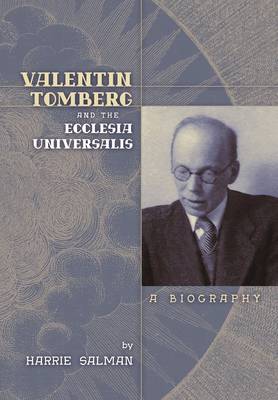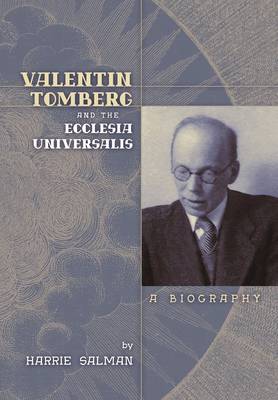
- Retrait gratuit dans votre magasin Club
- 7.000.000 titres dans notre catalogue
- Payer en toute sécurité
- Toujours un magasin près de chez vous
- Retrait gratuit dans votre magasin Club
- 7.000.000 titres dans notre catalogue
- Payer en toute sécurité
- Toujours un magasin près de chez vous
Description
In his teens and twenties, Russian-born Valentin Tomberg (1900-1973) was already exploring not only the Orthodox influences in his home city of St. Petersburg, but also such currents as those of Theosophy, Anthroposophy, Kabbalism, and Hermeticism. In his thirties, he emerged as a leading anthroposophical researcher. As an emigré from revolutionary Russia, he went first to Estonia, then to Holland, where his work bore increasingly the imprint of the stream of Platonism. During the years 1940-1943, Tomberg worked with a small group unveiling ever deeper layers of the Our Father prayer. When the Nazi occupation brought this work to an end, he turned increasingly to the subjects of jurisprudence and the Hermetic tradition. During this period, he joined the Catholic Church. There followed his intense work on "Christian Hermeticism," displayed in his masterwork, Meditations on the Tarot: A Journey into Christian Hermeticism. Tomberg's works raised controversies: in particular, fundamental questions regarding the relationship between Anthroposophy and the Catholic Church. This long overdue biography finally illuminates thematically and historically Tomberg's pivotal significance in a developing Christian culture-an Ecclesia universalis-in which he discerned the guiding impulses of the Archangel Michael and the Divine Sophia.
Spécifications
Parties prenantes
- Auteur(s) :
- Editeur:
Contenu
- Nombre de pages :
- 268
- Langue:
- Anglais
Caractéristiques
- EAN:
- 9781621388722
- Date de parution :
- 12-09-22
- Format:
- Livre relié
- Format numérique:
- Genaaid
- Dimensions :
- 152 mm x 229 mm
- Poids :
- 548 g







